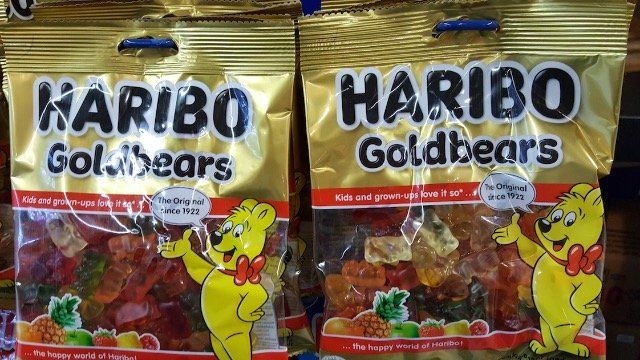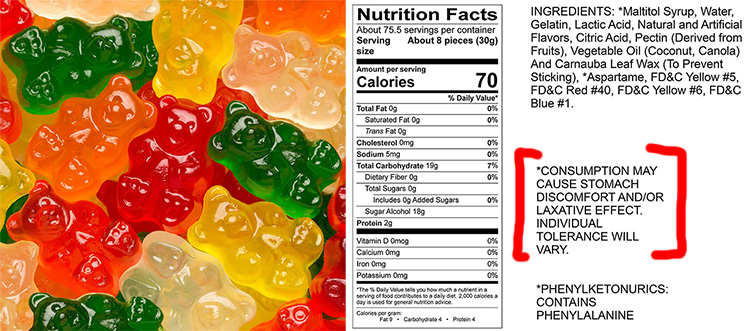Haribo Sugar-Free Gummy Bears have taken the internet by storm, primarily through their hilarious and infamous reviews on platforms like Amazon. Described in a multitude of ways ranging from “delicious” to “dreadful,” these gummy treats represent a compelling case study in modern food experiences. Delving deeper into the world of sugarless indulgences, we unravel the truth behind these beloved yet contentious gummies, exploring user experiences, health implications, and expert opinions that highlight the complexities of sweeteners and consumer reactions.

haribo sugar free gummy bears reviews amazon
Why the Hype? Taste vs. Terrible Consequences
At first glance, the sugar-free variety of Haribo gummy bears seems to offer a guilt-free alternative to traditional candies. With zero sugar, they claim a lower calorie count, drawing in health-conscious consumers. However, the sweetener used—maltitol—raises eyebrows and digestive disruptions. This sugar alcohol is known for its laxative effects, leading some to label Haribo Sugar-Free Gummy Bears as “dangerous” in their reviews. For instance, a user articulated, “I had never felt such simultaneous relief and anguish in my life,” after an outing with the gummy bears, stating, “I immediately went home, dug a hole in my backyard, and burned the evidence.”

haribo sugar free gummy bears reviews amazon
The Sweetener Dilemma
Experts like Dr. Robert Lustig, a pediatric endocrinologist and professor of pediatrics at the University of California, San Francisco, often caution against excessive consumption of sugar alcohols, claiming they can lead to gastrointestinal distress. “These sweeteners can ferment in the gut,” he explains, “leading to gas, bloating, and diarrhea.” This medical insight complements the comic reviews circulating online, where consumers describe dire consequences ranging from multiple bathroom visits to debilitating cramps.
The Balancing Act: Taste Satisfaction and Health Risks
Haribo Sugar-Free Gummy Bears continue to receive mixed reviews regarding their flavor authenticity. Many users praise them for capturing the essence of the traditional gummy bear, commenting on their “soft, true-to-taste fruit flavors.” Yet, on the flip side, numerous comedic reviews warn potential buyers to “just don’t. Unless it’s a gift for someone you hate.” The humor reflects a deeper truth about consumer expectations: the allure of low-calorie products often masks their potential adverse effects.
Celebrity Chef Perspectives
Interestingly, renowned chef and nutrition expert, Jamie Oliver, has remarked on the trend of consumers shifting towards healthier options without considering the implications of artificial sweeteners. “We need to be cautious about what we label as healthy,” he advises. “Often, these sugar-free alternatives lure people into a false sense of security.” Such sentiments resonate strongly with the adverse experiences expressed in Haribo reviews, where the aftermath often overshadows the initial joy of indulging.
Finding Balance in Treats
Despite their mixed reputation, the popularity of Haribo Sugar-Free Gummy Bears showcases a broader societal trend: a desire for balance between enjoyment and health. This modern tug-of-war leads many to explore various snacks and treats that align with their dietary preferences, particularly among those with dietary restrictions like diabetes or those adhering to low-carb diets.
Promoting Self-Love and Mindful Eating
Health advocates stress the importance of mindful eating, encouraging consumers to savor their treats mindfully rather than overindulging. Encouraging balance does not equate to restriction but promotes a healthy relationship with food. The humorous warnings from consumers serve as cautionary tales, embodying a journey towards understanding personal limits while finding joy in treats like gummy bears.
FAQs About Haribo Sugar-Free Gummy Bears
Why did HARIBO discontinue sugar-free gummy bears?
HARIBO faced backlash over the extreme digestive effects that their sugar-free gummy bears had on consumers, leading to a temporary discontinuation of the product. They later modified the recipe to better address consumer concerns.
What is the sweetener in HARIBO sugar-free gummy bears?
The primary sweetener used in HARIBO Sugar-Free Gummy Bears is maltitol, which is known to cause gastrointestinal discomfort in larger quantities.
Is there sugar-free HARIBO available?
Yes, HARIBO does offer sugar-free gummy options, which can be found on various platforms including Amazon.
How many carbs are in sugar-free gummy bears?
Typically, sugar-free gummy bears contain a lower carbohydrate count than their sugary counterparts, but exact amounts can vary by brand. For instance, the average serving may contain around 28g total carbs with 1g net carbs per serving size.
In conclusion, the saga of Haribo Sugar-Free Gummy Bears illustrates a larger narrative about consumer choices, dietary needs, and the humor inherent in modern shopping experiences. While indulging in these sweet treats can bring about delightful flavors, it’s crucial to enjoy them responsibly—because the last laugh might just belong to your gut.